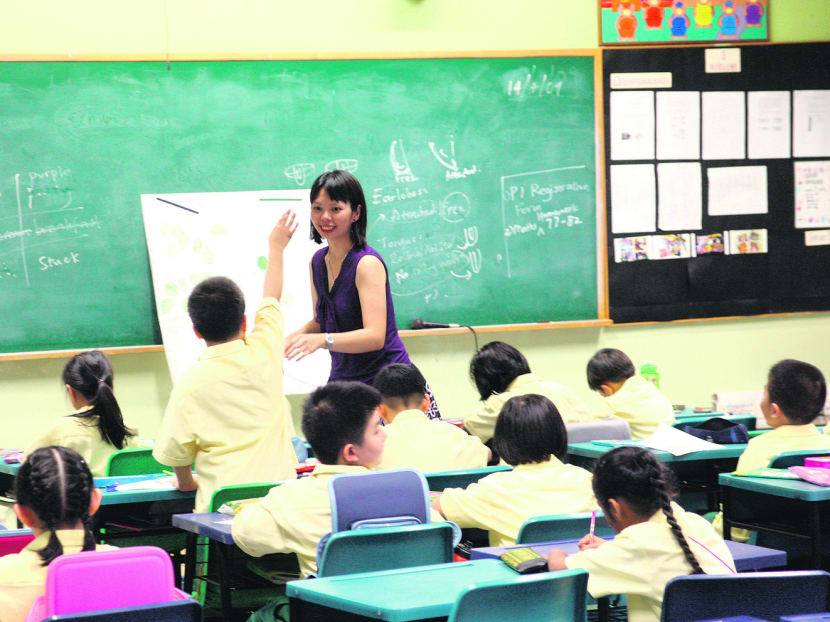Going beyond exams in educating a nation
Today’s the start of the new school year for thousands of students in Singapore: A new beginning, especially for those transitioning from primary to secondary schools. School is such a significant part of our lives, especially in today’s knowledge-based economy.
Today’s the start of the new school year for thousands of students in Singapore: A new beginning, especially for those transitioning from primary to secondary schools. School is such a significant part of our lives, especially in today’s knowledge-based economy.
Singapore’s education system has played a major role in the country’s transformation. Our students score high in international tests, including in creative problem-solving. The emphasis on education has enabled Singaporeans to get good jobs as our economy matured and contribute to economic nation-building. It also helped socialise a fledgling nation into a cohesive one.
Nevertheless, the demands of the education system, with its emphasis on examination success, have also consumed many households, leading to over-parenting.
Education cannot be decoupled from curiosity. Otherwise, learning becomes a chore, with a series of hoops one has to jump through as an “insurance policy” against under- or unemployability. That education is an end itself, rather than a means to an end, is the more dominant approach in our society today. Consider the booming tuition industry, the popularity of brand-name primary schools and residential developments near them, the lack of sleep and stress unwittingly imposed on our children. Matters are not helped as our inherently competitive society is overlaid with self-indulgent materialistic tendencies in which the rewards of doing well in school are narrowly associated with a comfortable life in future.
Do not get me wrong — our students should be challenged to reach their full potential and attain high achievement. There is nothing ignoble about having an eye on the prize. But academic success is only one part of the purpose of the education. Is our love for paper qualifications surreptitiously taking away the joy of learning and inhibiting the nurturing of innate curiosity?
CHARACTER A BETTER PREDICTOR OF SUCCESS
In the drive for academic achievements, our students must not compromise their holistic development and develop jaundiced views about education and learning. This has repercussions for the necessity of lifelong learning. More than that, character and personality traits are better predictors of success in higher education and in life than mere grades.
To be sure, the Education Ministry has been at the forefront of changing mindsets, emphasising different peaks of excellence in schools, skills-based training, and making “every school a good school”. Acting Minister of Education (Schools) Ng Chee Meng noted last week that our education system is at an “inflexion point”, with two major challenges being nurturing a generation of “innovators and value-creators” and ensuring that young Singaporeans possess “a strong Singapore heartbeat”.
Problem-solving remains a necessary skill, but it is insufficient in a rapidly changing employment landscape. Our students have to be equipped with not only technical competence and mastery, but also the thirst and hunger to be innovators and creators. As Minister Ng put it: “‘Value-creating’ is about finding and defining problems and opportunities, when these are not yet obvious. It requires joining disparate dots to form the picture. Value-creating is about inventing new, cutting-edge innovations that will change the game.”
This is where our education system must strive towards recognising failure as an integral part of learning and self-development. In the course of their learning, our students must not fear making mistakes or failure. If a complex of not making errors seizes our students, then the value creation transformation that is needed to launch into the next stage of economic development is going to be stillborn. More than that, such an approach restricts learning opportunities, risk-taking, grit and imagination that can sustain our students for life.
In a word, it is about making learning “fulfilling”. Learning is a craft in which work and satisfaction are intertwined. As parents, we want the best for our children. But how we get there is just as important as the eventual outcome. In our quest for them to be academically successful, do we underemphasise values and activities that are important for their personal growth and development?
Our education system must not only ensure strong domain knowledge, but also instil in our students the values and ethos that will enable them to develop an inner compass and moral purpose as to who they are and what they stand for, including a strong nation-building orientation and commitment. In Minister Ng’s words, education must “galvanise Singaporeans together as one … a strong fabric that holds Singapore together”.
If we nurture a generation of individuals who only care about their own contentment, wellbeing and success, and lacking in empathy, then we would have failed in the profound moral responsibility of instilling spirit and soul that will strengthen them individually and our society collectively.
We must endeavour to have every student discover his/her authentic self and develop their inner moral nature during their formative years in school. They will then appreciate the common welfare and good, and be active, contributing — rather than law-abiding — citizens.
A new school year is a good beginning. May we endow our children with space to discover themselves, let them savour and live in the present while they prepare for a complex future, and give them the independence to grow in our hypercompetitive world and still be happy for who they are and who they will be.
ABOUT THE AUTHOR:
Eugene K B Tan is associate professor of law at the School of Law, Singapore Management University.







